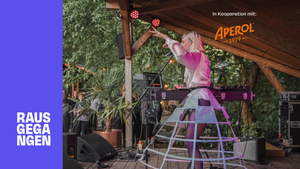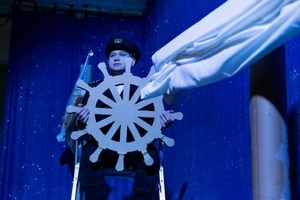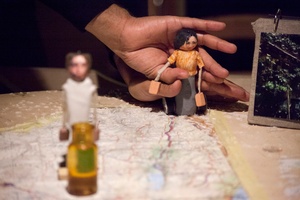In the organizer's words:
Kaspar and Emire grew up in youth welfare. In residential groups and foster families, amidst labeled Kellogg boxes, grating visits from the authorities and sentences that nobody wants to hear. A few years later, they meet again in Berlin. But a lot has changed since they lived together in the facility. How do you preserve and connect memories when people, places and moments are absent? Who has the opportunity to remember, and who doesn't? And what does it mean to grow up without parents in a society that declares family to be the greatest good?
From Kaspar Hauser to Harry Potter to Momo - children who do not grow up with their parents are important figures in literature and pop culture. As charismatic and mythical figures, they hover between concepts of autonomy and self-determination, resistance and adaptability. But what is the real situation of children who do not live with their parents? What experiences do young people who grow up in youth care have - and how do they experience them in adulthood? How can they remember their childhood, which hardly anyone can testify to due to the many changes? Kaspar Hauser Killjoy makes experiences from youth welfare visible as an associative fabric and expands representative approaches to include a self-articulated perspective and states: "Family is what we do together. Uncontrollable, vulnerable. Without a head, without boundaries, without a state.
In 2020 alone, 127,000 children and young people in Germany were accommodated in residential youth welfare facilities. Around 90,000 children and young people lived in full-time care with foster families. Moments of care experienced inside and outside of youth welfare services form a still underrepresented but necessary archive for social coexistence, which is characterized by diverse individual and cultural expressions and positions. The everyday life of young people in out-of-home care often runs counter to the individualistic and neoliberal tendencies of the present. People from a wide variety of contexts live together here and organize their lives in family-like settings. On the one hand, this life is determined by communal practices - on the other hand, the structures of youth welfare are closely linked to issues of classism, ableism and racism.
The project "Moments of Care" archives the collective memory of people from youth welfare contexts through several artistic-cultural formats that revolve around questions of care, living together and communality. Kaspar Hauser Killjoy is part of the "Moments of Care" project. It is made possible by IMPACT funding from the Senate Department for Culture and Social Cohesion.
Director and text: Anna Kücking
Dramaturgy: Julla Kroner
Stage and costume: Louis Caspar Schmitt
Video: Marlene Blumert
with: Olivia Marie Purka, Alina Sokhna M'baye
This content has been machine translated.






